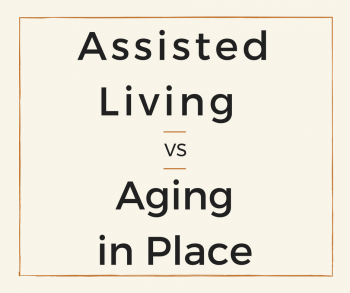As seniors age, it is common for them to develop chronic conditions that require long-term management. These conditions can significantly impact their overall wellbeing and quality of life. However, with the right care and support, seniors can effectively manage their chronic conditions and maintain a good quality of life. In this comprehensive guide, we will explore various aspects of managing chronic conditions in seniors, including preventive measures, lifestyle modifications, and the role of technology in enhancing their health outcomes.
Understanding Chronic Conditions in Seniors
Chronic conditions are long-lasting health conditions that often progress over time. Some common chronic conditions that seniors face include diabetes, hypertension, arthritis, heart disease, and chronic obstructive pulmonary disease (COPD). These conditions require ongoing management to prevent complications and optimize overall health.
Prevention: A Key to Managing Chronic Conditions
Prevention plays a vital role in managing chronic conditions in seniors. Encouraging regular health check-ups, promoting a healthy lifestyle, and adopting preventive measures can significantly reduce the risk of developing chronic conditions. Vaccinations, such as flu shots and pneumonia vaccines, are important for seniors to protect themselves from respiratory illnesses that could worsen their existing conditions.
Lifestyle Modifications for Chronic Conditions
Managing chronic conditions often involves making certain lifestyle modifications that can lead to better health outcomes. Encouraging seniors to follow a balanced diet, engage in regular physical activity, and maintain a healthy weight are crucial steps. Additionally, counseling and support groups can help seniors cope with the psychological impact of their chronic conditions.
The Role of Technology in Managing Chronic Conditions
Technology has transformed the way chronic conditions are managed in seniors. With the advent of digital health solutions, seniors can now monitor their conditions more effectively and independently. Smartwatches and health monitoring apps allow them to track vital signs, medication schedules, and even connect with healthcare professionals remotely. This technology empowers seniors to take control of their health and provides a sense of security and independence.
The Importance of Medication Management
Proper medication management is crucial for seniors with chronic conditions. It is essential to ensure they take their medication as prescribed and at the right time. Organizing pill boxes and using medication reminders can help seniors adhere to their medication schedules. Regular medication reviews with healthcare professionals can also prevent adverse interactions between different medications.
The Benefits of Regular Exercise
Regular exercise has numerous benefits for seniors with chronic conditions. It improves cardiovascular health, increases strength and flexibility, and reduces the risk of falls. Encouraging seniors to engage in appropriate exercises, such as walking, swimming, or gentle yoga, can have a significant impact on their overall health and wellbeing.
Social Support and Emotional Wellbeing
Social support and emotional wellbeing play a crucial role in managing chronic conditions in seniors. Isolation and loneliness can exacerbate symptoms and lead to a decline in mental health. Encouraging seniors to join support groups or engage in social activities can provide a sense of belonging and improve their emotional wellbeing, reducing the burden of their chronic conditions.
The Importance of Regular Check-ups
Regular check-ups with healthcare professionals are essential for seniors with chronic conditions. These visits allow healthcare professionals to monitor the progress of the condition, adjust treatment plans if necessary, and address any concerns or complications. Seniors should be encouraged to maintain a proactive approach towards their health and attend scheduled appointments.
Creating a Supportive Environment
Creating a supportive environment is crucial for seniors managing chronic conditions. This can involve modifying their living space to ensure it is safe and accessible, providing assistive devices as needed, and fostering an atmosphere of understanding and empathy. Family members and caregivers should actively involve themselves in the care process and provide the necessary support to seniors.
Conclusion
Managing chronic conditions in seniors requires a comprehensive approach that encompasses preventive measures, lifestyle modifications, and the integration of technology and social support. By taking proactive steps, adhering to treatment plans, and creating a supportive environment, seniors can effectively manage their conditions and live a fulfilling life. With the advancing technologies and evolving healthcare landscape, the outlook for seniors with chronic conditions is brighter than ever before.


